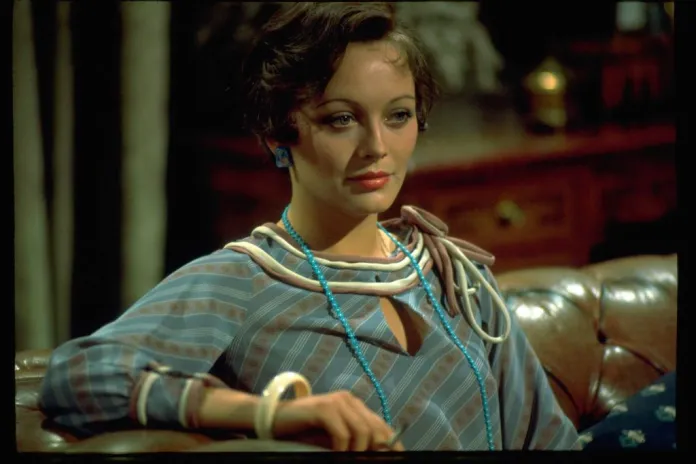A pox on Netflix’s plague ‘comedy’ – Washington Examiner
The text is a review of Netflix’s adaptation of “The Decameron,” directed by Zosia Mamet, described as a misguided modern take on Boccaccio’s classic work set during the bubonic plague in 14th-century Italy. The critic expresses disappointment with the show, characterizing it as overly reliant on screeches and exaggerated accents, lacking the humor present in similar comedic works. The adaptation is criticized for its anachronistic dialogue and superficial characters, leading to a viewing experience that is deemed “pestilentially stupid.” The plot revolves around Pampinea, portrayed by Mamet, who schemes to claim a manor under false pretenses amidst the chaos of the plague. The review ultimately concludes that the performances are poor, the humor fails to land, and the overall production feels lazy and uninspired. The critic laments that “The Decameron” does not provide engaging content, questioning the minimal effort involved in its creation.
A pox on Netflix’s plague ‘comedy’
What must David Mamet think of The Decameron, Netflix’s laughless comedy of medieval prurience and plague? In the 1990s, long before his turn as a conservative provocateur, the dramatist was famous in iconoclastic circles for his condemnation of modern acting, with its endless “funny voices.” Yet strained artificiality is the new production’s primary mode, not least in the performance of Mamet fille, Zosia, formerly co-star of HBO’s Girls. An exceptionally loose adaptation of Boccaccio’s 14th-century masterpiece, the show is a veritable feast of screeches, squeals, gasps, and unlikely accents. If the high priest of “just say the line” directing has a kind word for his daughter’s recent project, I can’t imagine what it is.
Is pop-Freudianism an odd beginning for a television review? I suppose so. It is a mark of how little The Decameron offers, however, that the critic is reduced to speculative family counseling. Not so much anchored by the young Mamet’s performance as dragged by it to the sea floor, Netflix’s latest is a disaster not only of casting but of form and style as well. Set in bubonic Italia, 1348, the series is Monty Python without the guffaws and Bridgerton without the sizzle. If pressed, I would concede that the costumes are interesting. Beyond that, the show is so pestilentially stupid that I left it to die in the street after three episodes.
Like its literary progenitor, The Decameron follows Florentine noblepersons to a country villa, where our heroes hope to wait out the Black Death in style. Unlike that source material, the series produces abundant dialogue in the “Yeah, no, you’re right” vein, seemingly laboring under the delusion that anachronisms must be funny. (“F*** yeah, signora,” declares some poor bastard halfway through the pilot.) Among the production’s other attempts at humor are catfights, insults of the “mouth-breather” variety, and visual gags involving, e.g., a character’s perfume allergy. Dare I say these jokes don’t land? Indeed, The Decameron plays more than anything like an economic experiment on the part of its host platform. What is the minimum amount of talent, effort, and money that can be exploited to produce eight new hours of streaming content?
The show stars Zosia Mamet as Pampinea, a not-entirely-fresh aristocrat on the verge of a favorable marriage. Unbeknownst to our protagonist, her intended, Leonardo, has succumbed to the plague, leaving his scheming servants to run his manor. When, in a move that recalls the stock plots of commedia dell’arte, these underlings announce that Leonardo is merely traveling, Pampinea hits upon an idea. If she can persuade her fellow refugees that the wedding has already taken place, the estate, and safety, will be hers.
If The Decameron is not quite an inheritance saga, many of its players nevertheless have pecuniary motives. Tindaro (Douggie McMeekin) is Leonardo’s formal heir and wants the estate despite his crippling hypochondria. Licisca (Tanya Reynolds), a penniless maid, has begun to impersonate her mistress (Jessica Plummer) after pushing the latter off a bridge. For those ensemblists ungoverned by money, carnality provides a handy substitute. Both Neifile (Lou Gala) and her husband (Karan Gill) lust after Dioneo (Amar Chadha-Patel), Tindaro’s attendant physician and friend. Dioneo himself wants Licisca, whether or not she is who she claims to be.
Though the faces in question are memorable enough, the viewer is unlikely to keep these names straight. Neither is he liable to experience any cast member as more than a one-note caricature. In part, this is due to The Decameron’s incurable silliness, which prevents our taking seriously any given fear or desire. Yet it is also true that the performances on display are simply bad. God’s own model of ironic detachment, Zosia Mamet is woefully out of place as a 14th-century anything. (One is reminded of Cynthia Nixon’s disastrous work in HBO’s The Gilded Age.) Other actors appear barely to be trying, having been instructed, one assumes, to aim for petulant shrillness above all. It is at this point that the critic typically reaches for an exception, if only to prove himself unbiased. There aren’t any. Unwatchably lazy and brainless, The Decameron isn’t even almost entertaining. It’s just a sad, unengaging dud.
The show is, if television executives know what’s good for them, one of the last outings of its kind. Ever since Hamilton blew the doors off American theaters in 2015, showrunners have been sprinting to create the latest in race-blind historical programming. That trend is now exhausted. The problem isn’t, let us be clear, the presence of minority actors in “white” roles. It’s that unlikely casting decisions have tended to inspire far less successful distortions. Thus is Hulu’s The Great a target-free “satire” rather than the perfectly functional costume drama it might have been. Thus have recent Bridgerton seasons been shameless exercises in progressive fan service. To be sure, the gonzo historical comedy can work: See Yorgos Lanthimos’s The Favourite (2018) for proof of concept. Note, however, that that film is 120 minutes long. The Decameron’s minutes add up to more than 400.
Is length the real problem here? It doesn’t help. Still, I suspect that Netflix’s newest offering would have failed as a six-minute Saturday Night Live skit, never mind a television series of any reasonable span. “Richer by far in coin than in wit,” Boccaccio writes of one of The Decameron’s many characters. How well he understood the world. Nearly 700 years later, the series he inspired may make a dollar or two for someone, but it doesn’t deserve to.
Graham Hillard is editor at the James G. Martin Center for Academic Renewal and a Washington Examiner magazine contributing writer.
" Conservative News Daily does not always share or support the views and opinions expressed here; they are just those of the writer."




